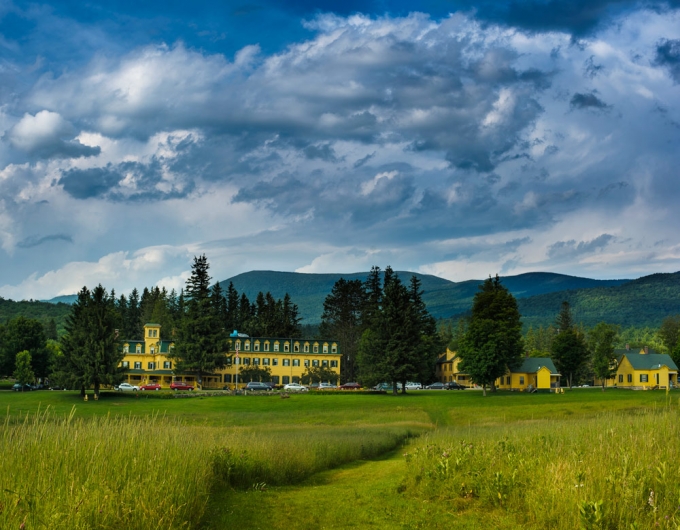Vermont 2050: Bridging the Urban-Rural Divide

By Kelli Archie
When we think about the critical issues associated with the environmental crisis and our survival, what immediately comes to mind are things such as the warming temperatures, rising sea levels, and the decimation of our biodiversity. But there is another issue that will also play a deciding role in our quality of life going forward, depending on how we respond to it: the urban-rural divide. As the political and economic differences between city and country dwellers are illuminated, an increasing number of social and cultural aspects of personal identity are becoming aligned with geography. But when thinking about solutions to our problems, whether economic, social or environmental, we fail to take account of these boundaries. Solving systemic issues requires input from both urban and rural groups. At the root, these communities remain intimately intertwined, with one providing the raw materials upon which urban production depends, and the other providing the markets that support the continuation of rural life.
One major barrier to uniting our rural and urban communities is that we too often consider policies and planning at inappropriate scales. A national-scale approach lacks the detail necessary to understand regional differences, while a completely local scale approach prevents us from seeing the interconnectedness between our communities and the surrounding environment. The same holds true for planning horizons. Too long of a horizon ignores immediate needs while too short of a horizon sacrifices the integrity of our environmental systems and neglects to ensure that we can continue to meet the needs of future generations.
EcoCiv is working on a multi-year project titled Rethinking the Urban-Rural Relationship to accelerate the process of bridging the urban-rural divide through a bioregional framework and employing a method called backcasting, which uses long-term goals to identify actions that need to be taken in the present. This program will include a series of local events in cities and towns across North America and will expand to include multi-city and eventually multi-national conversations that address the urban-rural relationship from a global perspective.

To kick off the Urban-Rural program, we are gathering leaders from across the state of Vermont to participate in a one-day event called Vermont 2050: Rethinking the Urban-Rural Relationship, that will take place at the Middlebury College Bread Loaf Campus on September 15, 2019. In partnership with Middlebury College, EcoCiv will facilitate a charrette-style discussion that will allow participants from a wide range of industries and backgrounds to engage face-to-face in designing a plan we call Vermont 2050: Roadmap to the Future, a Bio-Regional Approach. Brief talks by speakers on topics such as ecological civilization and bioregional planning will be interspersed between group activities and two formal rounds of charrette-style backcasting.
We expect between 70-100 participants including leaders and representatives from academia, government, business, agriculture, NGO’s and civil organizations and education. Including a diverse group of Vermont residents that have different areas of expertise, experiences and views, will both empower local agents and give planners and policy makers the opportunity to include local perspectives in state-level work. Utilizing this research-based, multi-pronged approach at the Vermont event will build relationships among participants and promote collaboration toward a collective vision. We will consider this event a success if participants walk away with knowledge of alternative pathways to a sustainable future, understanding of the wide variety of perspectives that exist among residents of Vermont, and the motivation to work together in creating systemic change. Our hope is that this event will begin the process of transforming Vermont’s social systems into an ecological civilization and prove to be a vector for a contagious form of change.
